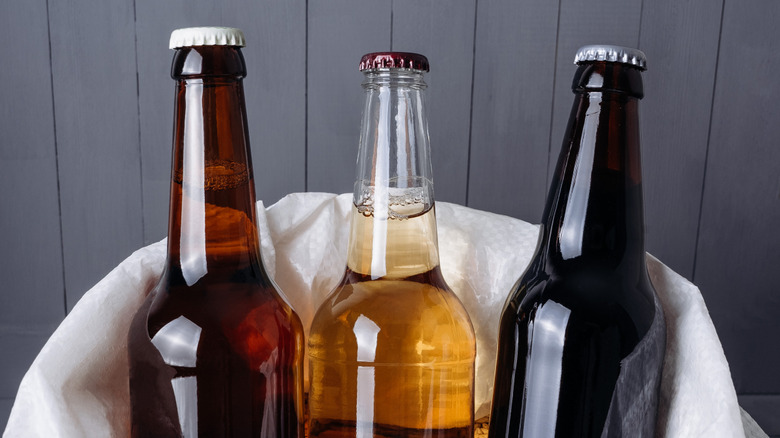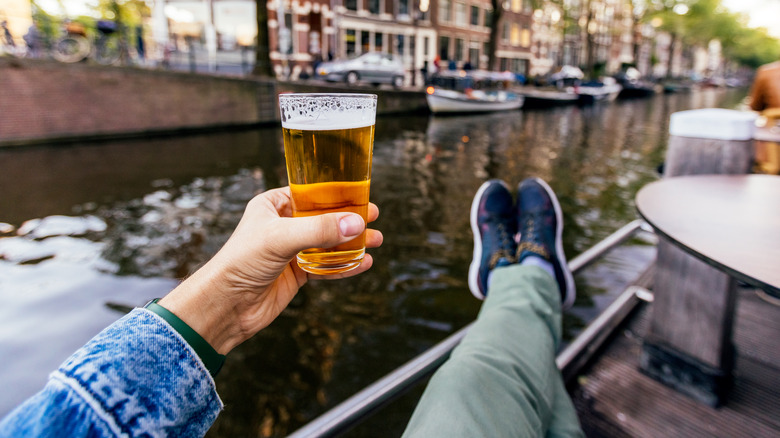The Major Mistake That Will Ruin Your Homebrewed Beer
Brewing beer at home is a difficult task, especially when you're new to the hobby and aren't sure how to start. After mastering homebrewing under the guidance of pros, there is one vital aspect of beer-making that many tend to forget about: sanitation. Beyond just being a matter of safety, being conscious of hygiene while homebrewing can keep you from wasting your time making a nasty batch of beer.
We discussed sanitation when homebrewing with Matthew Campion, the Co-Founder of Lunchbox Brewing Company, who said that sanitation is among the most important things to keep in mind on your beer-making journey. "It's not the most exciting part of brewing," Campion admitted, "but if your equipment isn't properly cleaned and sanitized, it can ruin a batch before it even starts."
As for how to sanitize your equipment, Campion also gave us insight into the best sanitizer to keep on hand as a homebrewer. "Star San is a must-have sanitizer," he explained, "It's easy to use and no-rinse, which takes a lot of stress out of cleaning." This suggestion is echoed by many homebrewers, as the strong sanitizer has zero effect on the taste of your beer and is widely considered very simple to use.
Water quality is also highly important when homebrewing
While general sanitation is the most vital thing to remember when homebrewing, a close second is the quality of water that you're using. This can be related to sanitation in a way (unsanitary water will lead to a gross batch of beer), but it goes even beyond just that, because beer is made up of 80 to 90% water, using high-quality water will do wonders for your homebrew beer. Matthew Campion explained, "If your tap water tastes off (i.e., metallic, chlorinated, etc.) that's going to show up in your final product."
This calls into question what kind of water you should be using. The best option is purified water that you buy from the store (which differs from the many other types of store-bought water), though this could end up costing you. It takes upwards of five gallons of water to produce just one gallon of beer at home, so many do rely on tap water for their homebrewing instead. In this case, Campion says knowledge is power, and water from the tap can be used to homebrew beer if done correctly. "Using filtered water or at least understanding what's in your local water supply can make a huge difference in flavor and consistency," he advised.

